To listen to RTÉ.ie's radio and podcast services, you will need to disable any ad blocking extensions or whitelist this site.

0
00:00
00:00
Episode Notes
Panel: Richard Collins, Terry Flanagan & Niall Hatch
Interviewer: Éanna Ní Lamhna
Reporters: Terry Flanagan & Jim Wilson
In addition to listening to us on RTÉ Radio One at 22:00 every Monday night, don't forget that you can also listen back to each of our programmes any time you like at https://rte.ie/mooney. There, you will find an extensive archive of past broadcasts, conveniently split into different topics and segments.
Listeners send in lots of queries for our expert panellists, and a selection of the most recent ones is featured in tonight’s programme. One of these queries, submitted by Marian Manning from Cork, concerns the year-round territorial behaviour of arguably Ireland’s most popular bird: the Robin.
With this in mind, our suggestion for you from the Mooney Goes Wild archives this week is a segment all about how these feisty little birds behave during the winter, first broadcast back in January 2014. In it, Innes Cuthill, Professor of Behavioural Ecology at Bristol University, explores the driving forces behind Robins’ winter songs.
To listen to this programme from the Mooney Goes Wild archives, visit
https://rte.ie/radio/radio1/clips/20503470/
Questions from listeners
We receive a large volume of queries each week from inquisitive Mooney Goes Wild listeners, and we do our very best to ensure that as many as possible receive a quick response, both on and off the air. We don’t always have the answers, of course – sometimes, nobody does, which is the driving force behind scientific discovery – but we do our best.
On tonight’s programme, our Researcher Michele Browne pops into studio with bundles of emails containing listeners’ questions for our panellists. One of these that particularly caught our eye was a query about the behaviour of a pair of Blue Tits in a Dublin garden, accompanied by a video which showed the small birds becoming very excited by a mirror in a garden, pecking at it and flying up repeatedly to flutter in front of it. Was this a sign of playfulness and mischief?
Unfortunately, this behaviour is actually a clear sign that the Blue Tits are under a great deal of stress: their behaviour is extremely aggressive. They aren’t playing with the mirror; rather, they see their own reflections in it and, not knowing what a reflection is, think they are seeing a rival that has dared to trespass onto their breeding territory. They go to attack these interlopers, but rather than fly away, the "rivals" seem to fight back with equal ferocity, matching them blow for blow. They can continue to do this for days or weeks on end, becoming more and more distressed.
This situation can lead to Blue Tits wasting a huge amount of energy and running the risk of serious injury, and can also lead to their breeding attempts failing. We would highly recommend covering garden mirrors with cloth, cardboard or some other material, at least until the autumn when the nesting season will be over. As panellist Niall Hatch of BirdWatch Ireland argues, it would be best if mirrors were never used in gardens at all, as they can cause big problems for many birds and other creatures.
For more information about Blue Tits, visit
https://birdwatchireland.ie/birds/blue-tit/
Is it still safe to cut hedges?
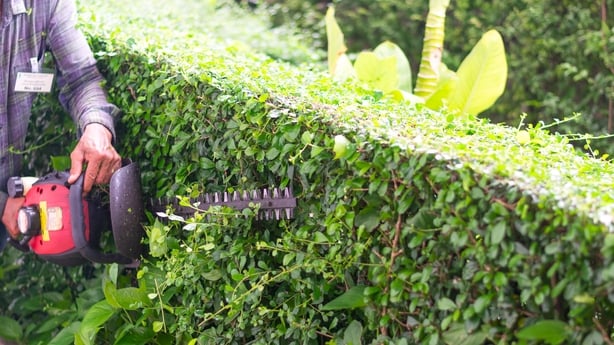
Another of the stand-out questions we received came from a listener called Rachel in Harold’s Cross, Dublin, who wrote as follows:
I’d love some advice as to whether I’ve left it too late to trim back my hedges. There’s so much birdsong in the garden I want to make sure I’m not going to interfere with any nests in progress. I’d welcome any thoughts. Thank you.
Under the Wildlife Acts, hedge-cutting is prohibited between 1st March and 31st August each year. Hedge-cutting is legally permitted during the month of February, therefore. That said, if you suspect that birds are already nesting or if the hedge-cutting is not completely necessary, we would recommend leaving hedges alone until the autumn or winter. The more cover you can provide for the birds and insects, the better they will fare.
Also, it’s worth noting that if nests containing eggs or chicks are already present, the Wildlife Acts prohibit any damage or disturbance to them, regardless of whether or not it is within the prohibited period for hedge-cutting.
For more information about the laws concerning hedge-cutting in Ireland, visit
https://birdwatchireland.ie/faq/when-is-hedge-cutting-prohibited-in-ireland/
Climate Heroes Wanted!
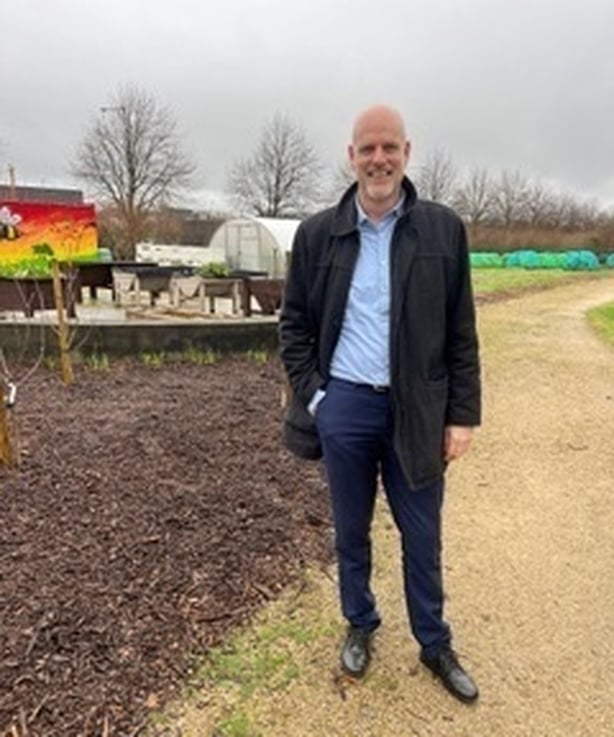
Global Action Plan is an organisation that strives to inspire people to become environmental change-makers. Founded in 1995, it recently announced its second annual Climate Heroes Challenge, a fun competition aimed at encouraging people to reduce their carbon footprints.
The Climate Heroes Challenge is team-based, free to enter and will run for two weeks in April. Last year 65 teams with 525 participants from 15 counties took up the challenge. This year, the organisers hope that even more will become involved. The challenge itself involves using simple actions, but by using powerful technology it will be possible to quantify the amount of carbon saving achieved.
Our reporter Terry Flanagan recently met the CEO of Global Action Plan, Hans Zomer, who explained what the challenge entails and how people can become involved.
For more information about the Climate Heroes Challenge 2024 and how to take part, visit
https://globalactionplan.ie/blogs/climate-heroes-wanted-2/
Birds and human health
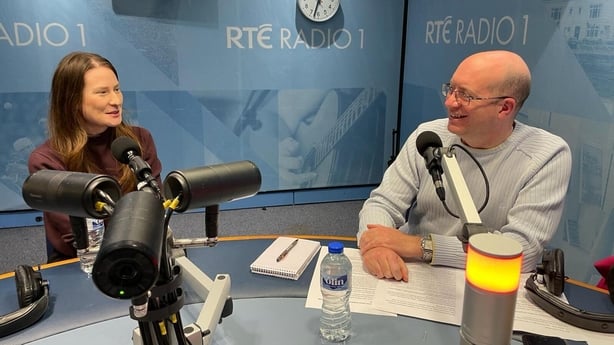
Awareness is growing about the extent to which our own well-being is connected to that of our environment. We are hearing more and more about how connections with and experiences of nature bring health benefits, both mental and physical, to people, in addition to the economic, agricultural and environmental benefits they provide. However, this can often seem somewhat nebulous and tenuous: it is very hard indeed to quantify just what those benefits are and what they are worth.
Well, a team of Irish researchers has been doing just that, at least in relation to the benefits brought by birds. Aimée Gray is General Manager of Agri Aware, a national body with the aim of creating a national awareness of the value of modern agriculture and farming, the stewardship of the rural environment, animal welfare and the benefits of nutritious Irish food. Together with colleagues Dr. Barry McMahon, Dr. Susan Doyle, Juliette Young and Caoimhe Doyle of the UCD School of Agriculture and Food Science, Aimée has published a scientific paper entitled Birds and human health: Pathways for a positive relationship and improved integration.
Aimée joins us in-studio for tonight’s programme to tell us more about her research into the impact of birds on human health, about the six different ways in which that help comes about and about the One Health concept, which recognises how human, animal and ecosystem health are all connected and that collaboration is required to ensure health for all.
For more information about Agri Aware, visit
Just One Leg to Stand On
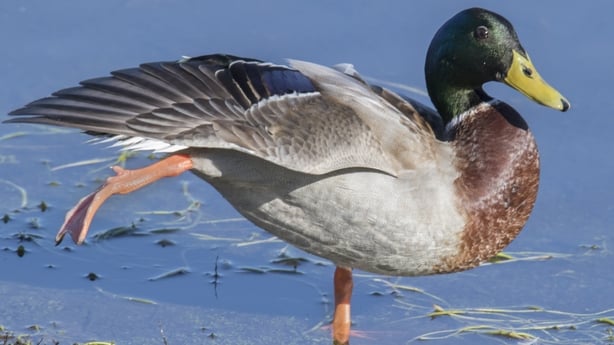
There was some very exciting news recently for St. Peter’s Secondary School in Passage West, Co. Cork. Pupils Éadaoin and Ciarán Farrell were awarded First Place in the Biological & Ecological Sciences – Intermediate Group category in the BT Young Scientist & Technology Exhibition 2024 for their ornithological project Just One Leg to Stand On: Do varying weather conditions affect the energy conservation of roosting birds?
The study carried out by Éadaoin and Ciarán involved observing roosting birds at Harper’s Island Wetlands, a wonderful nature reserve situated close to Glounthaune, Co. Cork. For many years, one of the key driving forces behind the creation and protection of this reserve has been out good friend Jim Wilson, so who better to go there to speak to these two award-winning young scientists about their findings?
For more information about the winners in the BT Young Scientist & Technology Exhibition 2024, visit
https://btyoungscientist.com/category-awards-results/
For more information about Harper’s Island Wetlands, visit
https://birdwatchcork.com/about-harpers/
New Year Plant Hunt
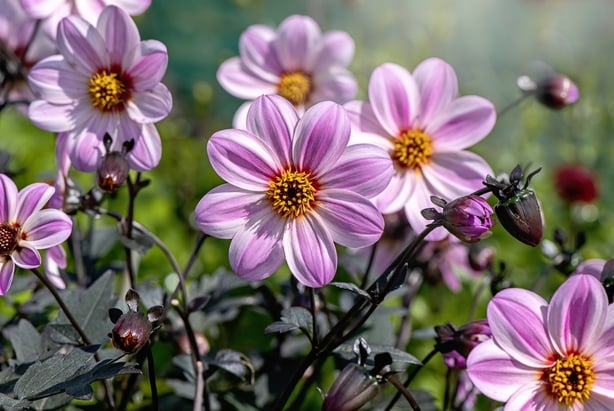
Earlier this year, plant-lovers across Britain and Ireland headed out in their thousands for the annual New Year Plant Hunt of the Botanical Society of Britain & Ireland. The records gathered by these dedicated citizen scientist volunteers tell a story of how Irish and British wild plants are responding to a changing climate.
On tonight’s programme, botanist and BSBI’s Ireland Officer Bridget Keehan speaks to Éanna Ní Lamhna about the results of the 2024 survey, which recorded 30% more plant species in bloom at the New Year than during the same period last year, and what they tell us about how our plants are coping with climate change.
For more information about the BSBI New Year Plant Hunt, visit
